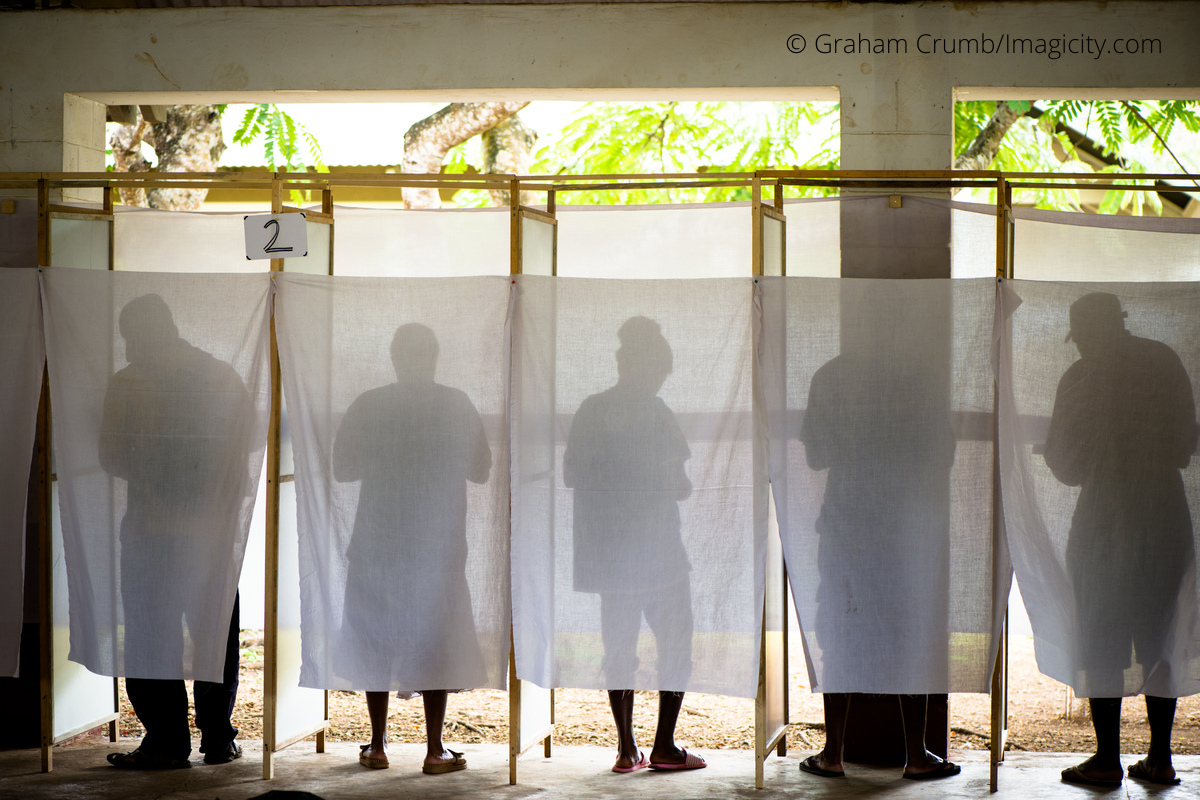A credible election is one that is inclusive, transparent, accountable, and competitive. While many observers focus on the specific event of election day, elections are actually a process made up of multiple components. Public confidence in each step of an election process is critical to the integrity of the election. In order for citizens to participate in, understand, evaluate and ultimately accept an election process and its outcome as representing their will, election data must be open to citizens.
In the absence of official data, rumors and disinformation can thrive, leading to the creation or exacerbation of social divisions and a trust gap between citizens and government. Having access to key evidence about each phase of the electoral process is crucial to competently evaluate the integrity of elections. As a supporter of the Open Government Partnership (OGP), the National Democratic Institute (NDI) has a keen interest in ensuring that critical electoral data is available, and in helping stakeholders use that data to enhance the integrity of elections and hold election management bodies and other electoral actors to account.
With support from USAID, NDI launched the Open Election Data Initiative in 2015 to better equip civil society, election administrators, and technologists with the concepts and tools to effectively advocate for, access, and use election data that is truly “open.” In the last five years, governments expanded and improved the availability of election-related data, while civil society enhanced awareness and the capacity to collect and analyze such data.
To support election observers employ specific strategies for open election data collection, analysis, and advocacy that reflect technological and policy advancements, NDI has developed an interactive guide: Beyond Transparency: Planning, Attaining, and Using Open Election Data in Citizen Election Observation. In 2021, the Institute used this framework to conduct a baseline assessment of election data in 12 Pacific Island Countries, measuring official information available to the public on the most recent general elections against the following principles, which outline that data should be: available for free on the internet; granular; complete; analyzable; non-proprietary; non-discriminatory; license free; and permanently available.
The assessment found that key election-related legislation is generally available to the public. Additionally, leveraging improved internet connectivity in the Pacific Islands, a few EMBs have started to facilitate real-time access to key election data, although some still struggle to provide minimal information online. To overcome challenges related to access to information that have been exacerbated by the pandemic, and to better serve out-of-country and remote-living voters, election officials are gradually realizing the need to maintain effective websites in order to improve electoral transparency. Encouragingly, a few election commissions have been setting up online platforms, including voter registration look-up systems, lists of polling stations, and constituency boundary maps. Understaffed, underfunded electoral management bodies remain, however, key structural barriers to open election data in Pacific Island Countries.
To follow through on international and regional commitments to transparency and accountability, national governments can further improve access to public-interest information—including on campaign finance and dispute resolution—allocate adequate resources to election management bodies to make key data available to election stakeholders, and foster an environment that proactively encourages independent election observation throughout the electoral cycle. This increase in data availability can also support voter education campaigns, which should take place to proactively inform citizens about these changes.
Election management bodies can make information more usable and practical by improving internal data collection practices, and maintaining an online repository of historic data that is readily and permanently available. They should consider creating websites that are safe, functional, and do not require high-maintenance skills or costs to ensure a feasible avenue for citizens, political parties, media, and other stakeholders to access and analyze key election data safely and continuously.
Finally, regional and bilateral partnerships can be conducive to consolidating democratic practices, including strengthening the right to information of public interest. To address the states’ limited financial and technical resources, a regional body could serve as a sustainable repository of some public election data, such as election results to enable analysis across multiple election cycles.
